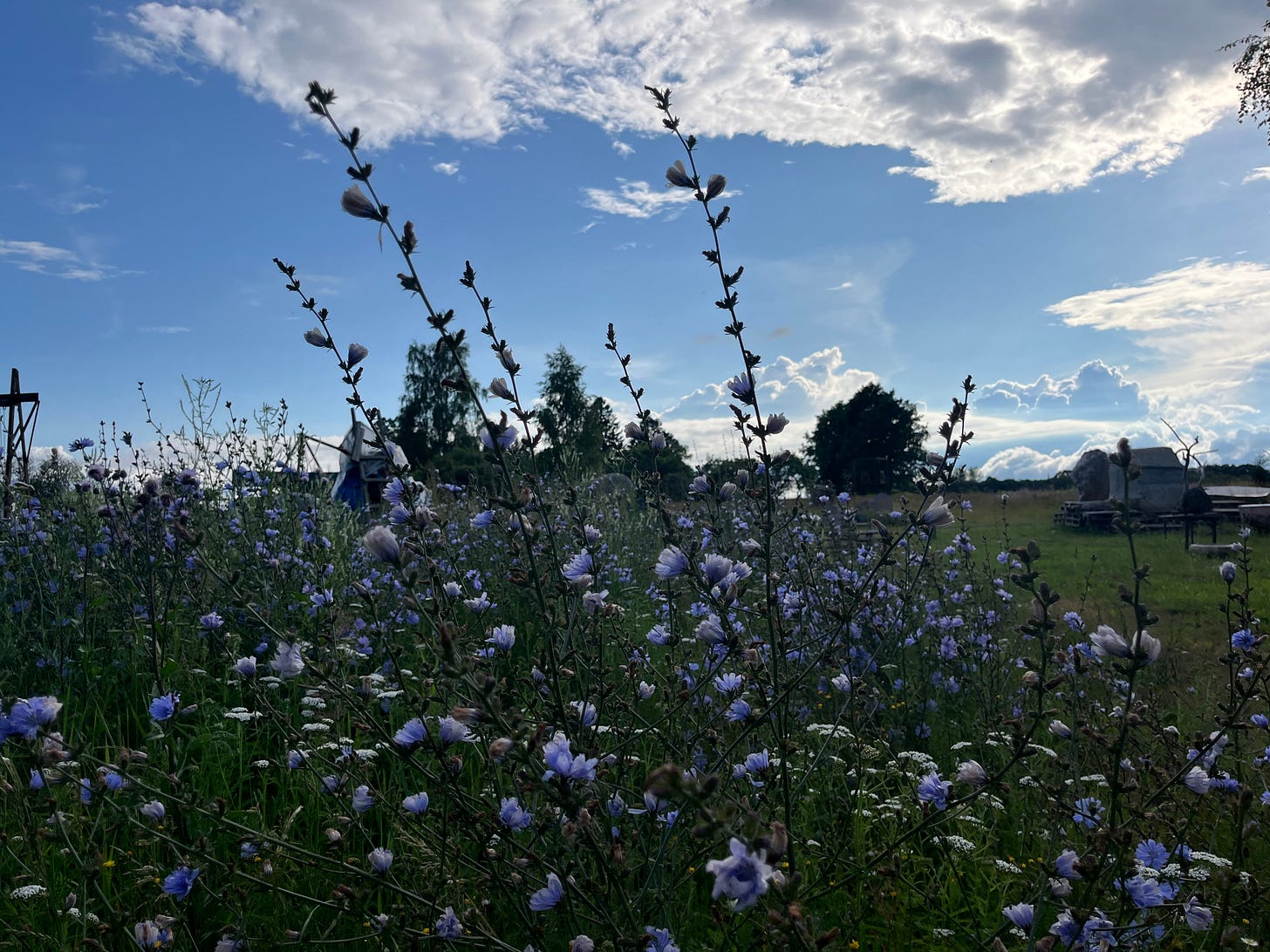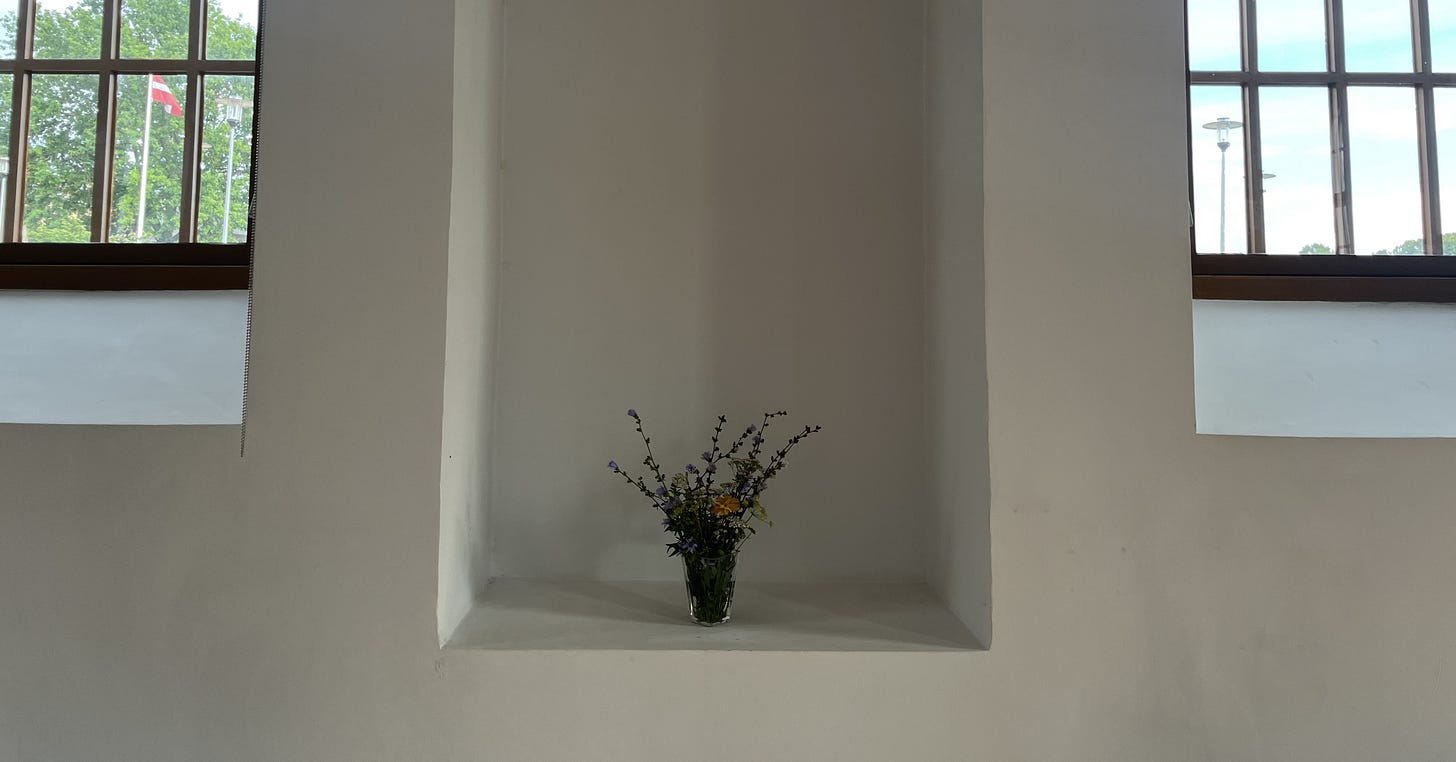How to Close? How to End?
Dusk’s wan light girds my ankles, then churns round the hem of my pants. A maw of silence, then evening mist, which whets both ground and sky. I am in Latvia to close the exhibition—to take down what I once, so faithfully, installed.
How to end?
In the meadow, storks clop through shorn grass, knocking back snails to the jugular. The older birds crowd the roofs, pushed from the nest by their fledglings. Yesterday, I watched as a new stork learn to fly. He wacked his wings in all directions. Graceless, bird went nowhere at all.
A friend on the phone: Well, did you think it was all just going to be ancestral bliss?
I laughed. Certainly not. And yet, I craved the synchronicity that I once knew, a certain fluidity that I shared with the dead.
Their thoughts, my thoughts. Their eyes, my eyes.
But the dead inhabit a different quality of time.
They bear no start, no stop, no end.
Ending is a human activity, a task for the living. Pressed in time’s hot bosom, we distinguish between stillness and movement, open and close, start and stop.
I soothe my ache with an excerpt from The King and the Corpse written by Heinrich Zimmer. (It’s a long quote, but worth reading, I promise!)
“Follow your unconscious intuitive forces blindly and with confident faith; they will carry you through your perilous trials. Cherish them; believe in them; do not frustrate them with intellectual distrust and criticism; but permit them to move and sustain you. They will bear you through the barriers, across thresholds and beyond dangers that could ot be met with any other guid, surpassed on any other mount. And until they ask you of themselves toconsummate what will be felt as a painful parting, do not kill them. When the time comes, they will mark the moment and indicatethe way; for, better than the rider, these mute forces understand that death, the dolorous sundering, is a prelude to rebirth, transmutation and reunion, and they know when the possibility for the miracle is present. They know what our ego, conscious and rational, never will comprehend: they know, namely, that there is no death”
In Latvia, I pull chicory. Blue after blue. Blue, my protection and ruin, my throne of glory tint. Overhead, a flock of starlings rattle into parade. Hundreds of wings and their lace curtain shape. Bird, too, pulls tight the string.
But mine the last gesture, the final boquet.
Meadow me, undone.
R E A D I N G S
Fever Your Sex is a Crab by Joyce Mansour, translated from the French by Emilie Moorhouse
Metonymy by Richard Siken
A poem by Alda Merini translated from the Italian by the inimitable a.Monti
Sad Tiger by Neige Sinno, translated from the French by Natasha Lehrer
H A P P E N I N G S
I’m going to be in California from August 11th through September 16th for a residency at Djerassi Resident Artist’s Program! Are you in San Francisco? The Bay Area? Come say hi.



